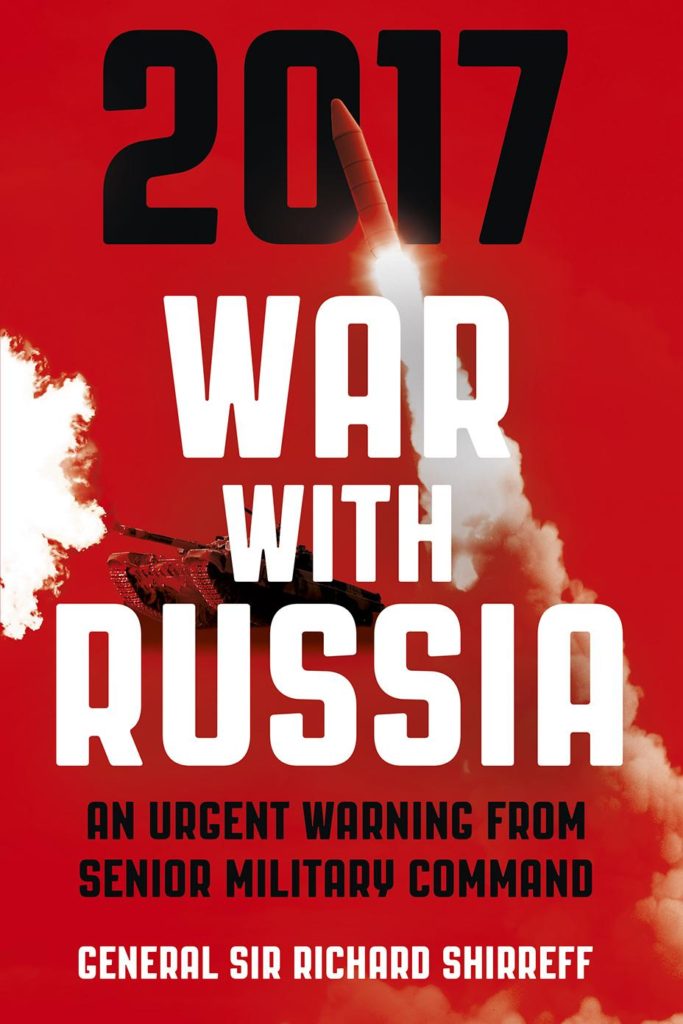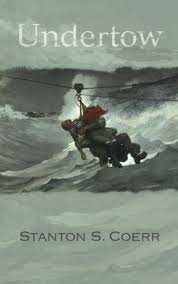
[by Mark Safranski a.k.a. “zen“]
Since Pakistan is now attempting to get its victory over the United States in Afghanistan formally ratified, now seemed to be a good time to reflect on the performance of American statesmen, politicians and senior generals.
It has occurred to me that we have many books and papers outlining how to win wars. Certainly the great classics of The Art of War, The History of the Peloponnesian War and On War are the foremost examples, but there are also other useful classics in the strategic canon, whole libraries of military histories, memoirs of great commanders and an infinite number of PDFs and powerpoint briefs from think tanks and consultants. Strangely, none of these have helped us much. Perhaps it is because before running this war so few of this generation’s “deciders” read them en route to their law degrees and MBAs
We should engage in some counterintuitive thinking: for our next war, instead of trying to win, let’s try to openly seek defeat. At a minimum, we will be no worse off with that policy than we are now and if we happen to fail, we will actually be moving closer to victory.
HOW TO LOSE A WAR
While one of these principles may not be sufficient cause for losing an armed conflict, following all of them is the surest road to defeat.
1. War is the Continuation of Domestic Politics:
The point of politics is to acquire, hold and enjoy using power. When we lose sight of this fact due to romantic notions of “national interest” or “duty” and spend too much attention prosecuting a war against foreign armies then our real enemies – the political opposition – can take advantage. What good is overseeing a global victory over an epochal tyranny if the result is you get immediately voted out of office like some hapless loser? While on the surface, it might seem wise during a war to staff a government with able statesmen, experienced generals, capable diplomats and other experts, the truth is that if you do so you will have very few plum jobs left with which to reward the cronies, ideologues, campaign consultants, activists, wealthy grafters and partisan hacks who got you into power in the first place. Without their continued support, you will not be long for political office.
The fact is that the nation can survive many lost wars far longer than your career will survive lost elections. Once you view the war solely through the prism of how any action might impact your fortune in domestic politics, you will have a marvelous clarity that the war is the best pretext upon which to expand your power at the expense of the opposition and the people.
2. Policy is the True Fog of War:
Having a clearly defined, coherently articulated policy based upon vital interests and empirical facts that sets a few realistic objectives in a way that makes possible shared understanding and broad political support is no way to go about losing wars.
Keeping in mind #1, the point of war policy is to generate a set of politically compelling slogans that remain ill-defined enough to serve as an umbrella under which many contradictory and competing agendas can cohabit until some of them can be opportunistically realized. These agendas may not be realistic – in fact, it is easier to put them forward as attractive fantasies for the public if your administration is unburdened with officials with genuine expertise in warfare, economics, foreign cultures, history and other inconvenient information that the media and the political opposition will only be too happy to seize upon. The more abstractly and arcanely expressed the policy the harder it is for critics to demolish and the better it is for losing wars. “Unconditional surrender” for example, is bad because it is too concrete and easily evaluated – either an enemy is totally defeated and in your power or he is not. “Make the world safe for Democracy” by contrast, is better as it is more ill-defined and subjective, permitting a larger range of politically tolerable bad outcomes. “Responsibility to Protect” and “War on Terror” are even more abstract, being essentially unlimited, open-ended, process goals that do not have any point of “victory” whatsoever and can thus not only potentially bring about losing wars but very long ones.
3. Strategy is a Constraint to be Avoided:
Strategy is about lining up Ends-Ways-Means to construct a theory of victory. While that might give us hope of prevailing over an enemy in an armed conflict, forging a strategy – any strategy -comes with a severe cost: namely the discipline of the government adhering to a strategy requires choices be made about the use of limited resources rather than keeping “all options open” to react to transient and trivial political concerns on a moment’s notice. Strategy for the nation equates with diminished political flexibility and mobility for the politician.
In other words, having a strategy might require elected officials expend their precious political capital in order to pursue it without getting anything in return that might expand their powers or further their personal careers. Doing strategy would mean prioritizing winning the war over other possible objectives and putting key decision-makers in the uncomfortable position of having to say “No” or “Not now” to powerful and influential people or factions. Worse, having a strategy also implies that the results can be quantified and evaluated for success, costs, failure and ultimately, personal accountability for leaders.
Obviously locking ourselves into a strategy is something to be avoided if we wish to stay in power, so “strategy” is only invoked rhetorically to mean a wide and confusing array of other non-strategy things – tactics, goals, operational art, planning, public relations, nation-building, diplomacy, policy, routine procedures, withdrawal dates, theories, fantastical pipe dreams and so on. When “strategy” means anything and everything it ultimately means nothing.
4. All Lost Wars are based on Self-Deception:
It is not enough to avoid strategy, there must also be a collective political determination to avoid reality enforced from the inception until the bitter end.
Wars have real and physically destructive consequences for the people who fight them, but unless you are engaged in a desperate struggle to repel a foreign invader, chances are the battlefield is far away from your home territory. This gives political leaders wiggle room to manipulate perceptions – most importantly their own – to political advantage by controlling information about the war and shaping the ideological boundaries of acceptable public discourse. This will eventually lead to a vicious cycle of bad decisions as misinformation and deceit corrupts the OODA Loop, but political leaders will maintain their political advantage over their critics, at least until the day of reckoning arrives.
Here we must begin with an insistence of a position of firmly held ignorance regarding the prospective enemy, their military capabilities, economic resources, the geographic characteristics, their cultural attitudes toward conflict and their history as a people. Should such information become widely known, it might result in popular skepticism about the wisdom of the entire enterprise, the difficulties that might be encountered and the prospects for success. If you wish to lose a war ignominiously, the less you know the better.
Likewise, once war has begun, the initial jingoistic overconfidence that greeted the war will quickly fade unless actively sustained by preventing an honest analysis of events and providing a steady stream of rationalizations for the gullible public. It would be a good idea to ban discussion that accurately characterizes the form of warfare or the nature of the enemy, though these things alone will not be sufficient. The intelligence process itself should be corrupted when possible to provide the “right” answers and censored or circumvented when it is not; while public assessments should use irrelevant metrics divorced from their context so that they will not have to be gamed later. Critics, truth-tellers, whistleblowers and those not towing the party-line should be retired, fired, demonized and punished.
5. Isolate the War and those Fighting it from the People:
A war forgotten by the folks at home is a war that is much easier to quietly lose.
At the outset of the war, ask no sacrifice of the people because that will give them too much of a stake in a victorious outcome and raise expectations about your own leadership. Neither raise their taxes (at least not for the war at any rate) nor conscript their sons. Do not even issue a national call to the colors for volunteers, instead encourage people to be at ease and go about their business. Supplement your small regular army that increasingly feels itself a caste apart with highly paid mercenaries and foreign paramilitaries while neglecting the needs of your own troops. Speaking of the troops, always lavish the soldiers with superficial public pieties about service, sacrifice and heroism, but cynically break faith when it comes to your obligations to look after their interests.
6. Complexity= Opacity and Micromanagement= Power
Most things in war are simple, but they are not easy. By deliberately making everything incredibly complicated, war can also become impossible too
While adding superfluous complexity does not help win wars, it does offer a number of immediate benefits for the political class. First, in real life the consequence of increasing complexity in any governmental endeavor (not just war) is that you will have more jobs and contracts to hand out to followers as bureaucracy and regulations require new inspectors, secretaries, managers, clerks, lawyers, advisers and in a military context, also new commands, staff officers, promotions, headquarters, increased budgets and so on. Chances are, most of these new jobs will continue on, if not forever, for a very long time.
Secondly the sheer complexity and number of offices, bureaus, agencies, departments, teams, commands, commissions and committees offer excellent “cover” for carrying out unpopular or illegal actions “under the radar” and with diffusion of responsibility, should these antics come to light. If everyone is in charge, then no one is. So if your military, intelligence agencies, diplomats, cultural advisers, aid and development people and senior administration officials talk and behave as if they are all hailing from different planets, you are well on your way to losing the war.
Third, the control of people at the top is reinforced by excessive complexity because the initiative of lower levels is strangled by micromanagement. If every idea from the field ( or even basic actions) requires two, three or more levels of command approval with consultation with lawyers at each step the answer is always going to be “No” or a very delayed “Yes” long past the point of being useful. This, plus making examples of those who exercise initiative and act without orders, teaches everyone in the system to eschew risk, value passivity, play it safe and wait for higher-ups to spoon-feed them instructions. With modern, networked online communications every colonel, brigadier to three-star can play company commander while the President of the United States can ride virtual shotgun on SEAL team raids.
7. Enormous Tail, Tiny Tooth: the Worse the ROI the Better
When you regularly use hundred million or billion dollar platforms to kill illiterate tribesmen with AK-47s and RPGs and build food courts in the Hindu Kush, something is eventually going to give.
Generally, a reasonably well governed country at war can afford to employ either a massive military force for a short campaign or a small, “light footprint“, force for the long haul. What few nations in history can afford, unless it is Persia under Xerxes, is to field a massive force disproportionately composed of rear echelon support troops and what used to be called “camp followers” and “auxiliaries” for years on end. There are two ways this can bring you to defeat.
First, obviously, fielding an enormous army for too long can lead to bankruptcy as costs of the war exceed tax revenues and the state begins to rely on various forms of credit, foreign bankers and debasing the currency to carry on. This does not guarantee an economic collapse or hyperinflation as war can also greatly stimulate production and other variables are always in play, but the risk of dire negative economic effects is significantly increased.
The second issue is that if you are moving your armed host into a desperately poor region to wage war against an impoverished enemy, the passage and encampment of your own military introduces the economic surplus to the local economy the enemy needs to afford to wage war. You are like a red hot iron in a bucket of ice water. Through bribery, extortion and theft the enemy will siphon from you money, arms and contraband and eventually, corrupt your own officials and officers.
8. Cultivate Hatred and Contempt:
If you wish to lose a war, be hated but not feared.
While most principles of losing a war are political, strategic or operational in nature and therefore the province of incompetent politicians and generals, cultivating contempt and hatred in all observers can be done at anytime by anyone regardless of rank, experience or status. Technology has revolutionized this sphere of losing warfare: where once undermining an entire war effort could only be done by an arrogant national blowhard, today any grinning idiot on a battlefield with a smart phone is only a tweet away from an international media firestorm.
It is import in cultivating hatred to remember that mere violence, an inevitable part of all wars, is not sufficient. One can respect and admire an honorable but fierce opponent. Conveying a bullying attitude of casual cruelty to all onlookers by mistreating prisoners and civilians, especially if you humiliate and abuse them is a surefire goad to hatred while also alienating allies and neutrals, especially when doing so contradicts the nation’s deeply held values. Hatred can also be stirred in less dramatic ways, from posing with Nazi flags to widespread ignorance of and expressions of disdain for local customs and mores. Disrespect has legs.
Contempt by contrast, is earned more by exhibiting moral weakness and truckling appeasement of the enemy and his sympathizers. For example, have your own PA and diplomatic organs in speaking to the media, repeat enemy propaganda against your own soldiers and abuse the military justice system to prosecute soldiers for splitsecond combat decisions in order to appease these critics. Loudly trumpet the “culturally appropriate meals” to the guys you are going to waterboard and appoint enemy sympathizers as “cultural advisers” and “liaisons” to government security and law enforcement agencies. Do nothing as your own heavily infiltrated host nation “ally” repeatedly frags your soldiers.
9. Protect that Which is Most Unimportant:
Organizations signal what they really value not by what they say, but what they spend time and money on.
Make sure that as the war is steadily being lost that top brass and their civilian overseers frantically emphasize politicized trivialities and institutional martinet nonsense. Reflector belt mania, giving everyone and their brother breathalyzer tests, cultural sensitivity training, counterproductive regs for MEDEVAC helicopters, promoting the gender equality of foreign societies and gender-neutrality of our own should bump out boring, old training exercises for future combat deployment in terms of priority. Remember, the military is not really there to win wars – it is a captive social engineering project for things the wackier members of Congress wish they could impose on their constituents were it not for those damned free elections.
10. Level the Playing Field: Paralyze Your Own Tactical Advantages.
While a war is often lost by having a bad strategy or no strategy at all, the power of crapping away your tactical advantages to no purpose ought not be underestimated. There are thousands of ways to do this but if you are cutting the enemy repeated breaks you can’t go wrong.
First and foremost, you wish to avoid bringing all of your combat power to bear on the enemy’s weakest point in a combined arms assault because he very well may break and then where the hell will you be? You can hardly lose a war if the enemy dies or surrenders first.
Treat your combat arms, services and host nation military as separate, autonomous and almost unrelated units, each with their own objectives and set of ROE guidance more restrictive than required by the Laws of War (while mixing in allied and host nation forces of varying levels of capability and different ROE). Make it difficult for fire support, armor and air to work with your infantry commanders dealing with unforseen circumstances, who you should also spread thin over remote operational areas the size of, say, Iowa to maximize their vulnerability. If a battalion is needed, send a company. If a company is called for, send a squad. Allow the enemy to have safe havens in adjacent countries whose military power is dwarfed by your own by many orders of magnitude. Make sure that your intelligence and public diplomacy services are shorthanded on personnel fluent in the languages used by the enemy, whom you allow to practice perfidy without punishment.
Remember, there are no guarantees in war. No matter how badly you screw up, the enemy might still be more poorly led and less adaptive than are you. That said, if you practice these ten principles you can become a master of the art of defeat.















